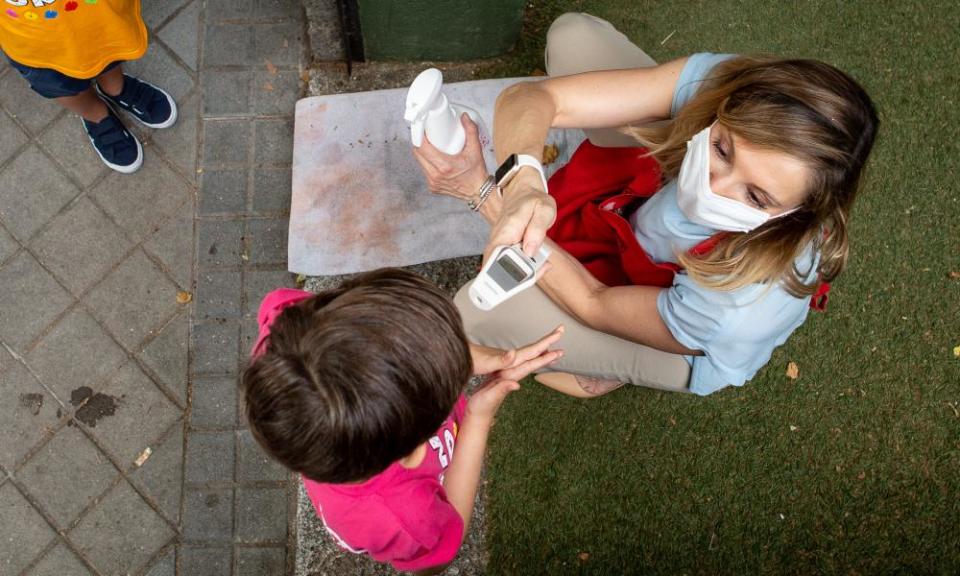Long Covid in children and adolescents is less common than previously feared

Children and adolescents who are infected with Covid-19 rarely have symptoms that last for longer than 12 weeks, according to a review of international research.
The review, published in the Pediatric Infectious Disease Journal, suggests that long Covid in children and adolescents is less common than previously feared.
The review analysed 14 international studies involving 19,426 children and adolescents who reported long-term symptoms after Covid-19 infections.
Related: ‘Health systems should be prepared’: doctors brace for tsunami of long Covid
Study co-author Prof Nigel Curtis, a paediatric infectious diseases specialist at the Murdoch Children’s Research Institute, said more research was needed to determine the exact risk of long Covid in young people, particularly to inform decisions about vaccinating children under 12.
“When you’re balancing the risk-benefit of vaccines, you always want to make sure the harms of the disease are more than the potential harms of the vaccine. Because the risk of the disease in children is so low, long Covid becomes an important factor.
“We don’t in fact have an accurate determination of the risk of long Covid, but it’s likely to be considerably less than many … headlines have been suggesting.”
Long Covid is a syndrome with more than 200 documented symptoms, but as a new condition, there is not yet a standardised clinical definition for diagnosis – including for how long symptoms should persist.
Curtis, who is also a professor at the University of Melbourne and head of infectious diseases at the Royal Children’s hospital, said: “Because there’s nothing we can measure and there’s no test for it, it makes it very difficult particularly when you’re trying to separate it from symptoms just due to lockdown or other indirect effects of the pandemic.”
Researchers acknowledged more work needs to be done as the review found almost all the existing studies had limitations.
In the reviewed studies, the five most common long Covid symptoms reported in children and adolescents were headache, fatigue, sleep disturbance, concentration difficulties and abdominal pain. But in studies that included control groups, the proportion of people who reported such symptoms was similar among individuals who had been diagnosed with Covid and those who hadn’t. In the majority of studies, symptoms did not last for longer than 12 weeks.
Related: At what age should children in Australia be vaccinated against Covid?
Other studies had a low response rate, which may have skewed the data. “People who respond to surveys are much more likely to be those with symptoms, so therefore you will exaggerate the rate of the risk of long Covid,” Curtis said.
Curtis sought to reassure parents without downplaying the individual impact of long Covid. “No one’s underplaying the fact that it exists … we do need to know how better to diagnose and treat the condition.”
A separate research brief produced by the Murdoch Children’s Research Institute on Covid-19 in children suggests that the Delta variant has not caused more serious disease in children than previous strains, although its transmissibility has led to higher infection figures.
“Hospitalisation remains rare, and the need for intensive care is exceedingly rare in children,” Curtis said. “The majority of children admitted to hospital [with Covid] do very well and go home, and often they are just admitted as a precaution.”
The research brief also found, however, that children and adolescents with pre-existing health conditions – including obesity, chronic kidney disease and immune disorders – were 25 times more likely to have severe Covid.
To date, no Australian children have died of Covid-19. There has been one adolescent death, in a Sydney teenager who also had meningitis.

 Yahoo Finance
Yahoo Finance 